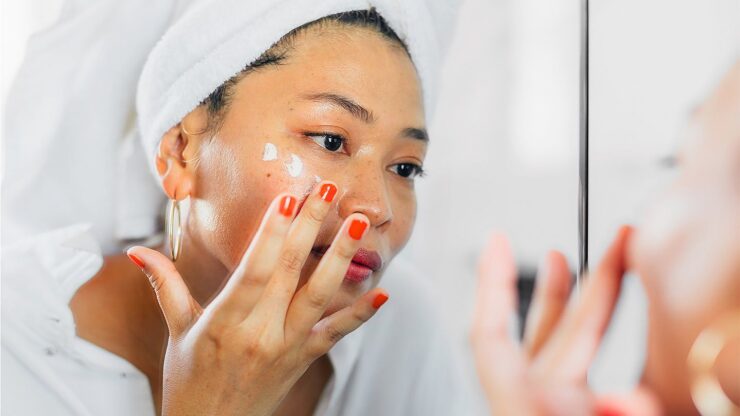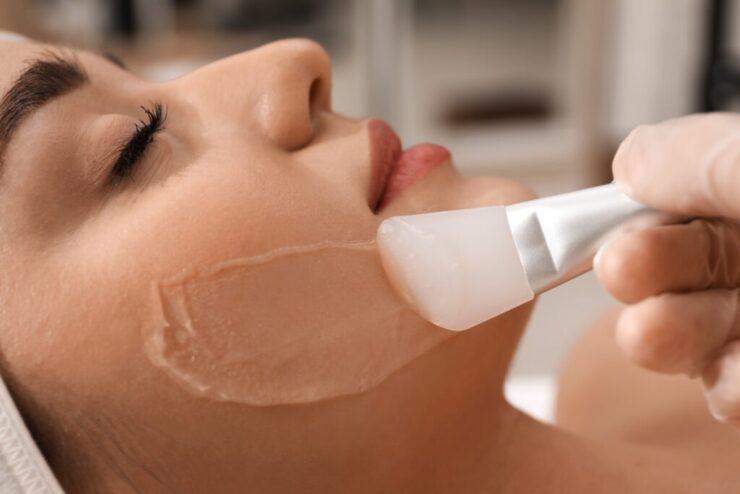Eczema, a chronic skin condition that leads to itchy, inflamed skin, affects millions of individuals worldwide. One of the most common methods to manage this condition is through the application of topical creams. They are specially formulated products that aim to provide relief from the symptoms of this bothersome skin issue. Their purpose is not only to manage the persistent itch but also to reduce inflammation and prevent flare-ups, contributing to the overall well-being of those affected.
Eczema Creams for Facial Use: Is It Safe and Effective?

When it comes to the application of an eczema cream from this website on the face, the answer isn’t black and white. The face is delicate, and the skin there is thinner compared to other parts of the body. Consequently, it may react differently to treatments. Nonetheless, in most cases, it can be used on the face, but caution should always be exercised.
Remember that not all eczema creams are created equal. Some products, especially prescription-strength ones like corticosteroids, might be too potent for the sensitive skin of the face. Long-term usage or misuse could lead to skin thinning, discoloration, or other side effects. Conversely, over-the-counter creams, particularly emollients and moisturizers, are generally considered safe for facial use.
Therefore, the effectiveness and safety of eczema creams on the face significantly depend on the specific product and individual skin condition. As such, professional advice is critical to ensure proper usage and to avoid potential harm.
Factors to Consider: Skin Sensitivity and Allergies
Before applying an eczema cream to your face, it’s important to consider a few key factors, namely skin sensitivity and allergies. Even if a product is deemed generally safe for facial use, individual reactions may vary.
Skin sensitivity plays a crucial role in how your skin will react to a specific product. Individuals with sensitive skin, which is often the case with those suffering from eczema, may experience irritation or even worsening of symptoms with certain products.
Similarly, allergies can significantly influence your skin’s response. Allergens are highly individual, so what may work for others might not necessarily work for you.
Furthermore, remember that the face is home to several vital organs like the eyes and mouth. Unintended contact with these areas can lead to discomfort or potentially severe reactions. As such, while eczema creams can bring relief, it’s always important to be mindful of potential risks.
Recommended Usage: Guidelines and Precautions

With these factors in mind, how then should you apply eczema creams to your face? Here are some general guidelines and precautions to consider.
Firstly, always do a patch test. Before you apply a new product all over your face, test it on a small area first. Monitor for any signs of adverse reaction such as redness, irritation, or itching. If these occur, discontinue use.
Secondly, follow the instructions on the product’s label or as directed by your healthcare provider. Do not exceed the recommended usage as this can lead to unwanted side effects. And remember, while creams provide relief, they should be used in combination with other skincare routines like gentle cleansing and avoidance of triggers.
Lastly, be cautious around your eyes and mouth. If the product accidentally gets in these areas, rinse thoroughly with water and seek medical attention if necessary.
Potential Benefits: Treating Facial Eczema Symptoms
Despite potential risks, using eczema creams on the face can yield significant benefits. Facial eczema can be particularly distressing due to its visibility, and creams can help to manage this.
They can alleviate itching and redness, two of the most common symptoms of eczema. They can also reduce inflammation, helping to calm the skin and prevent flare-ups. Moisturizing creams, in particular, can help to restore the skin’s natural barrier function, protecting against environmental irritants and preventing dryness.
By managing these symptoms, eczema creams can also improve skin appearance, thus boosting self-esteem and quality of life. Remember, however, that everyone’s skin is different. Patience and consistency are key in managing eczema, and finding the right cream for your facial skin may take some trial and error.
Potential Risks: Side Effects and Adverse Reactions
While eczema creams can bring about significant benefits, potential risks should also be acknowledged. Side effects and adverse reactions can occur, especially when products are used improperly or in excessive amounts.
Potent prescription creams, such as corticosteroids, can cause skin thinning, discoloration, or acne if used for prolonged periods or in high quantities. Even milder over-the-counter creams can cause allergic reactions or irritation in sensitive individuals.
Additionally, using too much cream can also lead to a phenomenon known as “tachyphylaxis,” where the skin becomes less responsive to the treatment over time, reducing its effectiveness. Therefore, it is crucial to strike a balance between seeking symptom relief and avoiding potential harm.
Balancing Act: Finding the Right Amount for Your Face
Determining the right amount of eczema cream to use on your face can be challenging. There’s a fine line between underuse, which may lead to inadequate symptom control, and overuse, which can result in unwanted side effects.
A general rule is to apply a thin layer of the product on the affected areas only. This typically translates into using just enough product to turn the skin from red to pink. Over-saturating the skin won’t necessarily bring faster relief and could, in fact, heighten the risk of side effects.
Remember, though, that every person’s skin is unique. What works for one person might not work for another. It’s also worth noting that the right amount can change over time, as the skin’s condition improves or worsens.
Seeking Professional Advice: When to Consult a Dermatologist

Given the complexities associated with managing eczema and using creams, it’s always wise to seek professional advice. Dermatologists are skin experts and can provide valuable guidance tailored to your specific needs and condition.
If you’re unsure whether a particular cream is safe for your face, consult a dermatologist. If you’re experiencing severe or persistent symptoms despite using over-the-counter products, seek professional advice. And if you notice any adverse reactions or side effects from using a cream, immediately stop using the product and get in touch with a healthcare provider.
Final Touch (pun intended)
Managing eczema can be a long journey, but remember, you’re not alone. With a bit of patience, plenty of self-care, and professional guidance, it’s entirely possible to keep eczema under control and live a comfortable and confident life.

